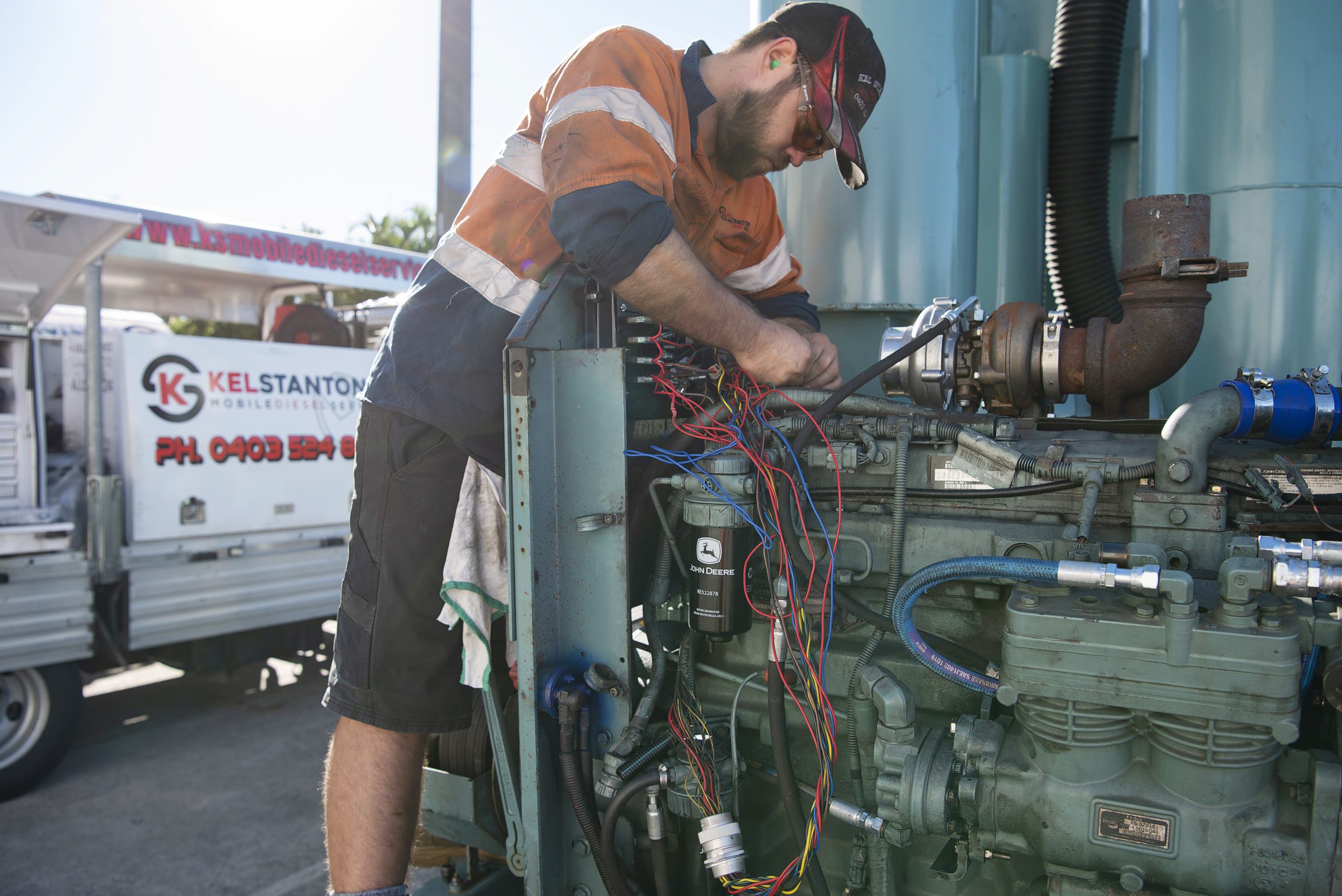Heavy vehicles all over the world, from 4x4’s to giant mining equipment, are powered by diesel engines. These engines have come a long way since their invention and they now burn cleaner and more efficiently than ever. Their design makes them a good choice for lots of applications where they offer more torque and longer lifespans than petrol engines.
Diesel engines are a type of internal combustion engine that works by igniting a mixture of fuel and air to drive pistons up and down inside their cylinders. If you’re familiar with how the petrol engine in your car works, then you already have an idea of how a four-stroke diesel works.

What Are The Parts Of Your Engine?
Both types of engine share the same intake-compression-ignition-exhaust cycle, but diesel fuel is more energy-dense and harder to ignite, so engines that use it works slightly differently, this also means they require different maintenance:
- Intake. There are many meanings for intake on a diesel engine, including the intake manifold, intake valve, and intake stroke. There are four strokes to a diesel engine, intake, compression, combustion (power) and exhaust. The intake of air through the intake manifold happens as the piston moves down, the inlet valves are opened, allowing air to be drawn into the cylinders. As the pistons move back up the cylinders, the valves are closed, compressing the air that was drawn in. The piston then approaches the top dead centre, with the air temperature becoming extremely hot and diesel is then injected. The pistons are then forced back down on the combustion (power) stroke and then start to come back up the cylinders, with the exhaust valves open, allowing exhaust gases into the exhaust system.
- Compression. A diesel engine is an internal combustion engine, with compression ignition (Diesel) rather than a spark ignition (Petrol). This means the ignition of the fuel is caused by the higher temperature of the air in the cylinder due to the mechanical compression and fuel being introduced/injected as the piston reaches the top dead centre of its stroke. Diesel engines have a much higher compression ratio than a spark ignition; a typical petrol engine might use a 10:1 compression ratio, while diesels use ratios anywhere from 14:1 to 25:1.
- If a diesel engine is having trouble starting, then a compression test should be done to ensure that the issue is effectively addressed.
- Ignition. Compressing the air creates heat. In diesel engines, the air is compressed so far that it can reach temperatures over 500°C. As the air in the cylinder reaches full compression, a fuel injector sprays in diesel which is instantly ignited by the heat, forcing the piston back down. There are many reasons that the ignition may not occur; these include things from a flat battery, blown fuse, key or ignition barrel worn, or the transponder not communicating with the ignition barrel, no fuel being injected into the cylinder
- Exhaust. This includes manifold, gaskets, diesel particulate filter (DPF), muffler, catalytic converter and pressure sensors. When we work on your vehicle, we check for leaks, holes, cracks, and damage to the exhaust.
- Mufflers can become blocked and require cleaning. They can also be changed to high flow for performance with things like bigger exhausts.
- Dump pipes can also be changed or modified within reason for performance, however, there are also heavy fines that come with illegal exhaust modifications if things like DPFs and catalytic converters are removed as this is an emissions standard that the manufacturer has to meet.
- Diesel particulate filters in the exhaust system also require maintenance. When driving down the road DPFs, do what’s called regeneration burns, which is when the DPF ash level reaches its required level the exhaust system gets extremely hot (650°C) and the DPF burns out the buildup, which then resets the ash counter and the process repeats. However, when the process has a malfunction, the engine will go into limp mode and will require a forced burn to clear the filter.
Because they don’t use spark plugs, diesel engines are very simple, but their higher compression ratios mean they need to be built tougher to handle the extra power. This is great for all sorts of vehicles because it means a properly maintained diesel should produce more power for longer.
Get in touch with us today to find out what you can do to get the longest lifespan and best performance out of your diesel equipment. Our team can answer any questions you have or book you in for the regular maintenance that will keep you running for years to come.
